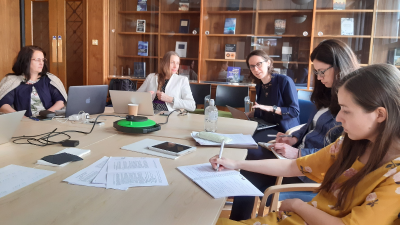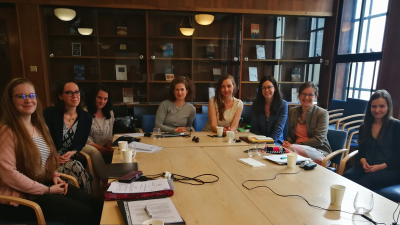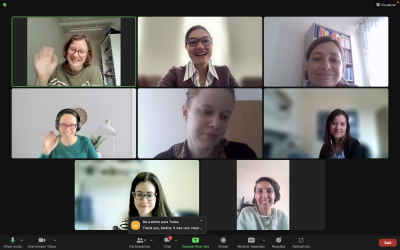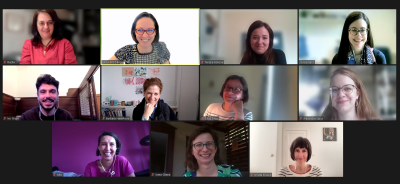
About the project
Feminist Judgments projects creatively and critically rewrite judgments from a feminist perspective and provide a model for more gender-sensitive judging. They reveal the need to incorporate women’s experience into decision-making and the formulation of legal rules, as well as to rethink more broadly what gender justice demands. However, they have so far been limited to Western legal systems and/or to those in the common law world.
As part of a new research project coordinated by Dr Silvia Suteu (UCL Laws), we are interested in exploring the question of what feminist judging might look like beyond these contexts. Our focus is on Central and Eastern European countries and the specific challenges and opportunities for feminist judging in the region. Not only are these countries part of the civil law tradition, and thereby their courts less likely to issue the type of discursive judgments familiar to the common lawyer, but they also operate under different constraints, including a propensity for formalism inherited from the communist legal method. The role of the judge in the legal process is different, as are the traditions, legacies, and unspoken norms. Legal education and the overall legal culture in these countries will present obstacles and openings unlike those of their common law counterparts. Last but not least, there has been strong resistance to and backlash against gender equality in the region, as exemplified by judicial and legislative steps to ban so-called “gender ideology” and the ratification of the Istanbul Convention. The current climate therefore makes it that much more important to study, model, and push for feminist judging.
Project collaborators
- Bulgaria: Ruzha Smilova (Sofia University, Centre for Liberal Strategies Sofia, and IWM Vienna) and Ivo Gruev (Academy for European Human Rights Protection, Cologne University)
- Croatia: Ivana Radacic (Ivo Pillar Institute Zagreb and UN Working Group on discrimination against women and girls), Josipa Saric (University of Kent) and Ana Horvat Vukovic (University of Zagreb)
- Czechia: Barbara Havelkova (Oxford University) and Terezie Bokova (Masaryk University)
- Hungary: Kriszta Kovacs (WZB Berlin Social Science Center and ELTE University Budapest) and Alexandra Sipos (European Institute for Gender Equality EIGE and Institute of Sociology, Hungarian Academy of Sciences)
- Poland: Anna Sledzinska-Simon (Wroclaw University) and Lidia Rodak (University of Silesia)
- Romania: Silvia Suteu (UCL), Elena Brodeala (University of Kent) and Emanuela Ignatoiu-Sora (University of Bucharest)
- Serbia: Ivana Krstic (Belgrade University) and Kosana Beker (University of Novi Sad)
The project benefited from the excellent research assistance of Ms Theodora Oancea, 3rd year LLB student, UCL Laws.
Advisory Board
- Marta Bucholc (University of Warsaw)
- Rosalind Dixon (UNSW)
- Melina Girardi Fachin (Federal University of Paraná)
- Rosemary Hunter (Kent University)
- Mara Malagodi (Warwick University)
- Ambreena Manji (Cardiff University)
Activities
16-17 June 2022 Project Workshop, Bentham House, UCL Laws


5 July 2022 “Feminist judging at a time of gender equality backlash and resistance in Central and Eastern Europe” Panel 47 at ICON-S Annual Conference, Wroclaw, Poland
13 July 2022 “Challenges of Feminist Judgments Projects in Civil Law Jurisdictions” roundtable at LSA Global Meeting, Lisbon, Portugal
17 May 2023 Exchange with Brazilian Feminist Judgments Project (online)

2 June 2023 Project workshop (online)

External collaborations
The FJ-CEE Project is part of the Feminist Judgments Law Society Association International Research Collaborative.
Funding
The FJ-CEE Project is generously funded through the UCL Global Engagement Funds. The Funds are intended to support UCL academics in collaborating with colleagues based in other countries. The funds are led by UCL's network of Vice-Deans (International) and Regional Pro-Vice-Provosts, supported by the Global Engagement team.
 Close
Close

